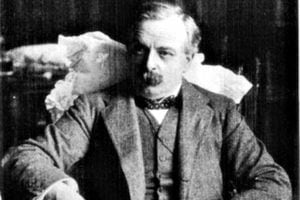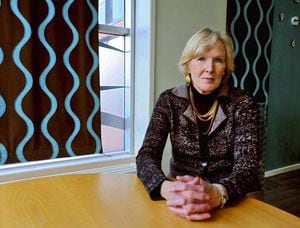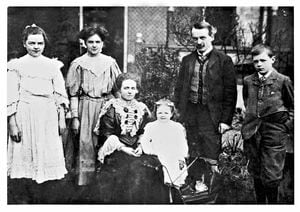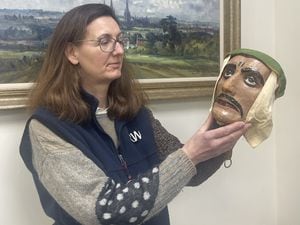How former PM David Lloyd George helped shape today's world
Margaret MacMillan was one year old when her great-grandfather David Lloyd George died.

They lived in separate continents, and the pair never met.
Yet, 69 years after his death, the former Prime Minister looms large in the historian's life.
As Oxford University's Professor of International History, Margaret MacMillan is one of the world's leading experts on the First World War. And her great-grandfather, who led the country during the last two years of the conflict, was one of the main architects of the British campaign.
Yet , as a child growing up in Toronto, she had little knowledge of the role her famous ancestor had in shaping the world we live in today.
As Chancellor of the Exchequer in Herbert Asquith's government, Lloyd George was a member of the Cabinet which took Britain to war in 1914. The following year he was appointed Minister for Munitions. Then in 1916, he became Prime Minister.
"I think growing up in Canada, there was not that much consciousness of who he was," says Professor MacMillan. "Had I grown up over here it would have been different."
But after a lifetime studying the history of the British Empire, Professor MacMillan is in no doubt that the attributes described by members of her family would have had a major impact on how he would have approached the war.

"My mother always told me he was a great charmer, and a good listener – I suppose being a good listener was what charmed people," she says.
"He had a way of treating everybody, as if he found whatever they were saying was really interesting, and that helped him to get along with people who he might have seen as rivals.
And it was this conciliatory nature which Professor MacMillan believes played an instrumental role in tackling the Shell Crisis of 1915. The failure by the allies to break down enemy forces at Aubers Ridge in May, 1915 was blamed on a shortage of explosive shells. The political fall-out resulted in the formation of a coalition government, with Lloyd George in charge of munitions.
"He was a great organiser, and very good at getting people to sit around the table, and that was very important when he took over the Ministry of Munitions, because if you don't get the munitions, you can't fight the war."
Professor MacMillan's background perhaps gives her a unique perspective on the war which cost around 16 million lives, and the futility of it all is not lost on her. "Europe in 1914 was the richest part of the world, the strongest part of the world, and in many ways it led the world," says Margaret MacMillan. "How could they have thrown it all away?" But the historian, who was at Wolverhampton University to deliver a special lecture on the causes and effects of the conflict, believes that logic often goes out of the window when countries decide to engage in the battlefield.

Prof MacMillan, who was signing copies of her new book The War That Ended Peace, says there were so many factors leading up to the war in 1914 that it would be impossible to identify a cause. But she says the period of peace and prosperity in Europe during the century leading up to the war was probably a factor. "The period leading up to 1914 was a period of great globalisation, Germany was Britain's biggest trading partner before the start of the war," she says. "But a lot of people don't like globalisation, they fear a loss of identity, and it is at times like that when you see the growth of small identities."
Despite many of the conditions which existed 100 years ago being present today – peace and prosperity followed by the growth of strong alliances between the world's great powers – Prof MacMillan does not believe there is any appetite for war. "It would be wrong to think we are too clever or sophisticated to make the same mistakes that people did 100 years ago, but there does not seem to be the mood for war that there was then," she says.





